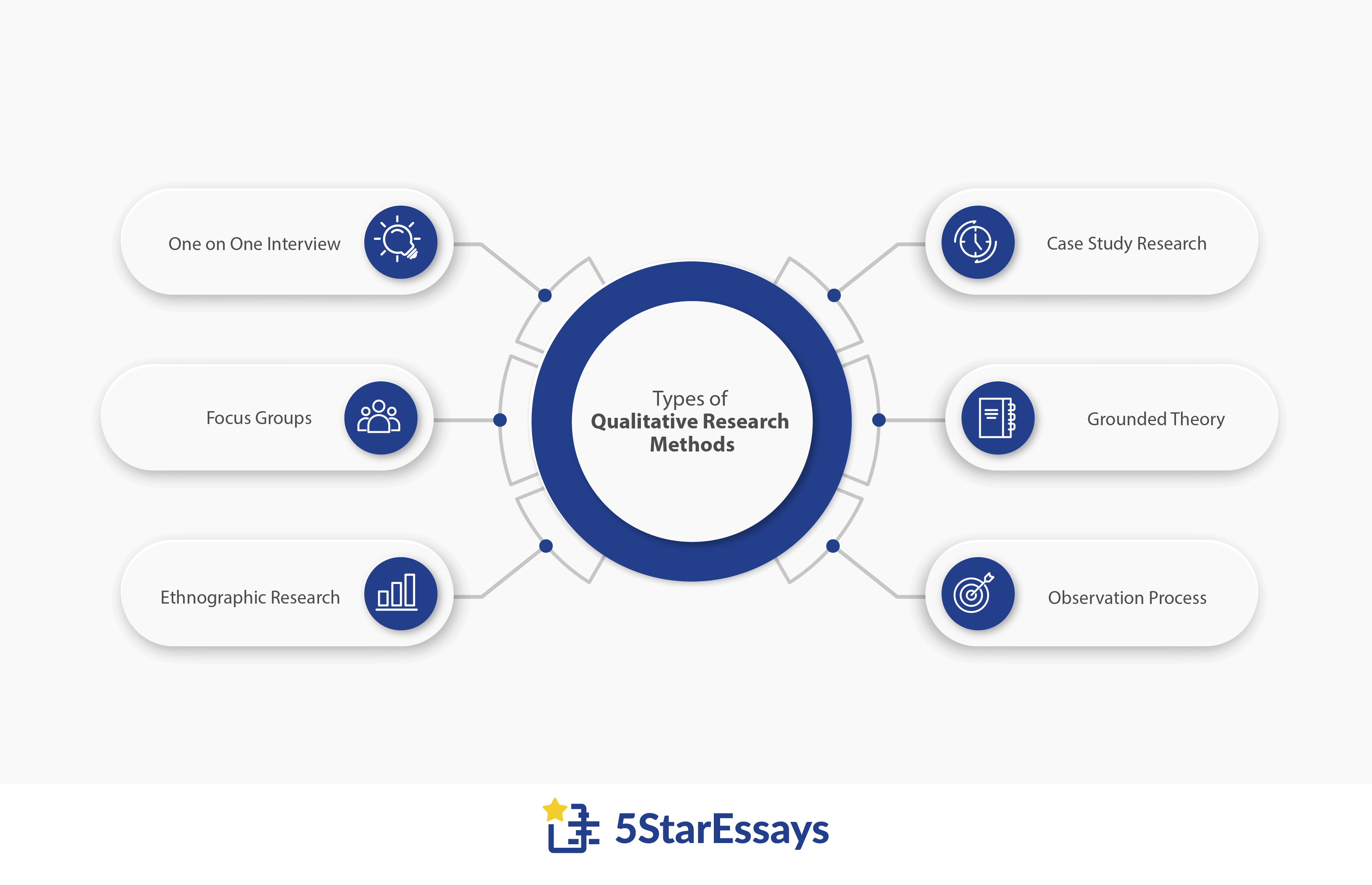Qualitative Research Definition
It is market-based research that focuses on the data collection process through communication.
Qualitative research approaches are applied across many academic disciplines. It particularly focuses on the human elements of the natural and social sciences.
It focuses on three main areas - culture and societies, individuals, and communication. Although there are a number of methods used in qualitative research, the approach that this method uses is rather subjective.
Here is an example of qualitative research.
Suppose a shop is looking to increase its sales. A systematic approach provides results that men visiting the store are more in numbers than the women.
To find out why it is important to conduct an interview of female customers in the first place.
After interviewing, it came into account that the store has fewer items for women. It was the main reason for them not visiting the store.
Therefore the qualitative research allows us to perform further questioning based on their initial responses. Understanding how your audience makes their minds can help you in concluding the market research.
Purpose of Qualitative Research
Qualitative research has a huge background in sociology. It has been used in this field for as long as the sociology field itself existed.
This type of research is mainly used by social scientists to examine the behavior and interaction of people with each other.
The purpose of qualitative research is to reveal the true meaning. It informs an action or an outcome that is typically measured by quantitative research.
So the qualitative researchers investigate symbols, meanings, and the processes of social life. Because it focuses on the everyday life of people, it tends to create new theories which can further be tested.
Qualitative research produces descriptive data that is then interpreted using different systematic transcribing methods.
Advantages of Qualitative Research
Here are the advantages of qualitative research design and methods.
- It provides meaningful insights that can be used in designing and testing systems or products.
- Data collection processes occur in natural settings.
- The process of data collection and analysis can be adopted as new ideas emerge.
- The concept of Synergy among the respondents, because they rely on each other’s ideas and comments.
- The interview nature of the group discussion process helps in engaging respondents in a more effective and structured way.
- The chance to observe and record non-verbal communication is also valuable during discussions and face-to-face interviews.
Limitations of Qualitative Research
Here are the disadvantages of qualitative research methodology.
- The natural setting often makes the results of qualitative research unreliable.
- Qualitative research can not be replicated as the main role of the researcher is to analyze and interpret data.
- Although different qualitative research tools are used to manage and record data. But a large amount of data often needs to be checked manually.
- Trustworthiness in qualitative research is another issue that needs to be tackled down. It is also known as credibility or validity. Triangulation in qualitative research is one of the most common strategies to establish trustworthiness.
Qualitative Research Questions
Usually, a research problem frames the whole study and influences the researcher in choosing the research method.
But generally, qualitative research lacks a set of assumptions or hypotheses. In this case, research questions are the result of the research design process.
If you have decided to use qualitative research. Here are the guidelines that can help you develop the right questions for your case study.
- Qualitative questions usually start with what, why, or how.
- It identifies a central phenomenon you are planning to explore
- Avoid using words such as effect, cause, influence, and relate.
- It often contains words like personal experience, experience, meaning, stories, and understanding.
Quantitative Research Questions Examples
- What is it like growing up in a single-parent family?
- What are the experiences of people doing a night job?
- Describe the mealtime of overweight people while dieting?
Types of Qualitative Research Methods
Qualitative research methods are designed to easily reveal the perception and behavior of your audience.
In qualitative research, different types of methods are used. These are focus groups, in-depth interviews, case study research, content analysis, and ethnographic research.
Qualitative research results are more descriptive, and results can easily be drawn from the obtained data.
Here are commonly used qualitative research types.

Below are detailed descriptions of each qualitative research method.
- One-on-One Interview
It is a personal interview conducted with only one person at a time. This is conducted purely in a conversational way and to get details from the respondent.
This is a great chance for you to gather a huge amount of data. You should focus on the thinking of people and what their motivations are.
These interviews can be conducted on the phone or face to face. The duration of such interviews is half an hour to one hour or even more.
- Focus Groups
The most commonly used research method in the data collection process. A focus group includes a fixed number of respondents from the target market. It is basically a small group discussion on a selected topic.
This method aims to look for answers to the research questions of what, why, and how. In this method, there is no need to interact with the respondents in person.
- Ethnographic Research
It is the most in-depth research method that observes the behavior of people in their natural environment. It requires the researcher to adapt to the environment of their target audience.
The main aim of ethnographic research is to know the culture, challenges, motivation, and settings.
For Example:
There is one way to uncover the needs of people is to follow them home. In this way, you can observe their interaction with the product.
There is no need to come up with a hypothesis. Instead, you just need to look and observe how the product is being used.
- Case Study Research
The method has evolved over the last few years and has become one of the most valuable research methods.
The case study is used to explain an entity or a company.
This research method is used within a number of areas like social sciences, education, etc.
For Example:
How a multi-national company has used UX research design methods in an agile development environment for qualitative studies. This would be a topic of great interest to many small organizations.
- Grounded Theory
Grounded theory is more into explaining the events. Researchers make use of interviews and existing paperwork and build a theory.
This method can help in designing decisions by better understanding the product usage by the customer.
For Example:
This method involves the understanding of how software developers make use of portals for communication. And how they are involved in the process of writing code.
- Observation Process
It is a research process that uses subjective methods to gather information. This qualitative observation method is primarily used to equate differences in quality.
This method deals with five sensory organs - sight, taste, touch, smell, and hearing. It does not involve numbers but characteristics.
If you want to learn more about research methodologies, you must explore our article on types of research. Make sure to give this article a thorough read.
Qualitative Research: Data Collection and Analysis
It is the initial stage of data preparation in qualitative research. It mainly focuses on the conversion of raw data into something readable and meaningful information.
Qualitative Data Collection
The qualitative data collection methods allow the researcher to collect non-numerical data and find out how decisions are made. For reaching a strong conclusion, collected data needs to be holistic, rich, and meaningful.
Multiple data collection methods can be used to get maximum insight into sensitive qualitative research topics.
Whatever method a researcher decided to choose to collect qualitative data. One aspect is clear that the process will generate a huge amount of data.
For example, if a researcher has decided to choose a one-to-one discussion or a focus group. There will be hand-written notes or tapes for video recording.
Some common data collection methods include the following modes.
- Observations - recording the events and things that you have seen, heard and observed.
- Interviews - asking questions to the people and recording their responses.
- Focus Groups - asking questions and collecting data based upon the answers.
- Surveys - using questionnaires having open-ended questions.
- Secondary Research - collecting the data in the form of images, texts, audio, and video recording.
Data Analysis in Qualitative Research
Qualitative data such as notes, images, text documents, audio, and video recordings.
Text analysis is an essential analysis method that is distinctively different from the other qualitative data analysis methods.
Here are the core qualitative data analysis methods.
- Content Analysis
To identify, summarize and categorize words, phrases, or ideas in the text.
- Thematic Analysis
To recognize and analyze the patterns and themes.
- Textual Analysis
To analyze the content and structure, and design of the text.
- Discourse Analysis
To study the mode of communication and language and the way it is used to achieve a specific effect.
Qualitative Research Sample
Here is a sample of qualitative research in which a selected case study is explained very clearly. This will help you to understand better how qualitative research is conducted.
Characteristics of Qualitative Research Methods
Qualitative research is natural because it studies a group of people in its natural setting. Usually, qualitative research methods collect data at first sight when the respondents are experiencing issues. These are real-time data and rarely bring the respondents out of their locations.
Through qualitative research methods, data is collected in multiple forms. These are participant observations, paperwork, and others rather than depending on a single source of data.
These types of research methods mainly focus on solving complex problems by breaking them down into smaller sections.
As it is more of an engaging method, people can easily build their trust in the person conducting the research.
Qualitative Research Vs. Quantitative Research
Many times those who undertake a research project often are confused between qualitative research and quantitative research methods.
Qualitative data and quantitative data are collected from various methods different from each other.
Many think that both qualitative and quantitative methods, both can be used. But it is not true
So what is the difference between quantitative and qualitative research?
The basic difference between these two research methods is quite simple and straightforward.
| Characteristics | Qualitative Research | Quantitative Research |
| Analytical objectives | This method is primarily focused on describing the experiences and beliefs of an individual. | This method is primarily focused on describing the population’s characteristics. |
| Question Types | Open-ended questions (a free form of survey questions) | Close-ended questions (answer questions with a set of predefined responses) |
| Sampling | Purposive | Random |
| Data Collection Instrument | Semi-structured methods like in-depth interviewing and focus groups | Highly structured methods like questionnaires |
| Data produced | Descriptive | Numeric |
| Approach | Subjective | Objective |
| Data | Verbal | Measurable |
| Result | It helps in developing an initial understanding | It recommends a final action |
You can also explore our article to know more about qualitative vs. quantitative research, similarities, and differences between the two types.
Looking for help in your qualitative research paper?
Research that uses qualitative methods does not seem to be an easy option. It usually involves a complex theoretical or philosophical framework.
If you are still feeling confused about your research paper?
Then don’t be.
We at 5StarEssays.com are here to provide you with the best ‘write my essay’ help. Get in touch with us, and you will get high-quality and affordable help.
Place your order for your research paper to get immediate help.












 Not seeing it? Check Promotions or Spam — inboxes get protective.
Not seeing it? Check Promotions or Spam — inboxes get protective.